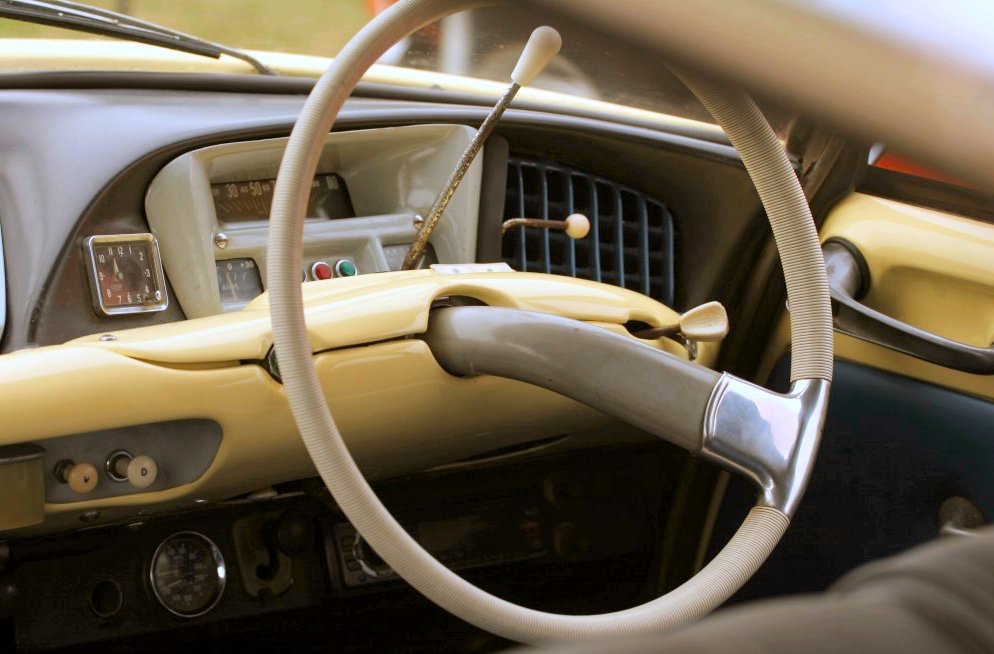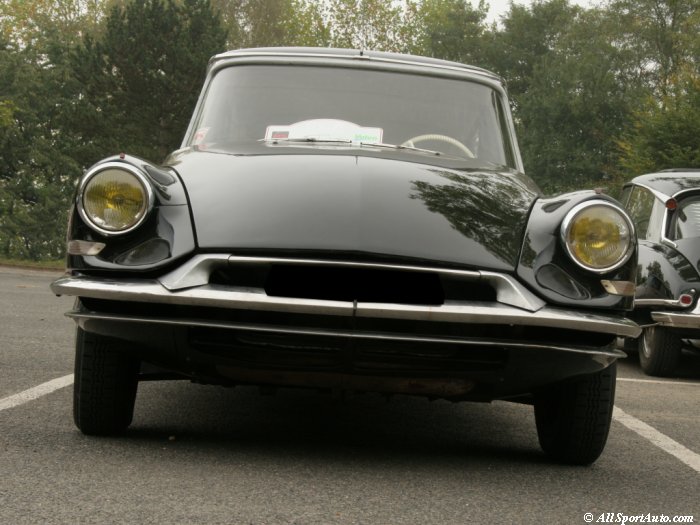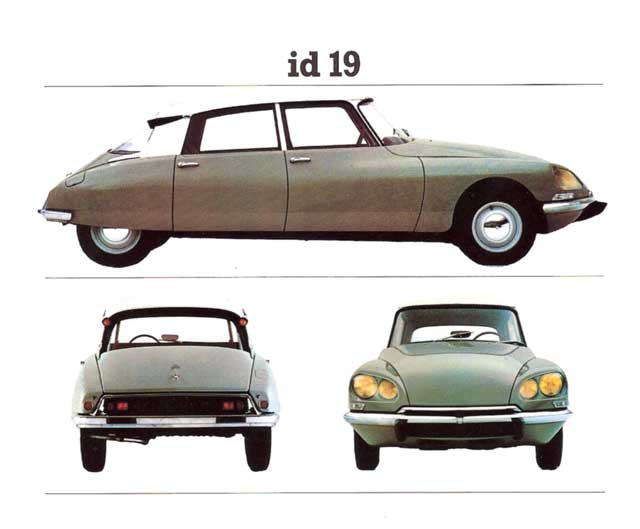Citroen / Citroen DS 19

Specs
| Citroën DS 19 | manual | 85HP (62 kW) @ 5250 rpm | |
|---|---|---|---|
| Citroën DS 19 | manual | 76HP (55 kW) @ 4500 rpm |
| Citroën 12 | manual | 35HP (26 kW) @ 3200 rpm | |
|---|---|---|---|
| Citroen Eco 2000 | Manual | 168HP (123 kW) @ 5000 rpm | |
| Citroen Eole | Manual | 106HP (78 kW) @ 6250 rpm | |
| Citroën G Special Break | manual | 56HP (41 kW) @ 5750 rpm | |
| Citroen Mini-Zup | Manual | 60HP (44 kW) @ 5750 rpm | |
| Citroen Multispace 1.4 | Manual | 90HP (66 kW) @ 4000 rpm | |
| Citroen Osee | Automatic | 109HP (80 kW) @ 4000 rpm | |
| Citroen Rally Raid | 4 speed automatic | 135HP (100 kW) @ 5500 rpm |
Worldwide Trends
GEO Interests
Videos / Citroen DS 19
2013 Tesla Model S vs 1956 Citroën DS-19! Head 2 Head Episode 29
(HD) EP: Citroën DS ID 19 PALLAS 1967 - Test Drive - Essai Routier - Giro di prova - Testfahrt
UNBOXING Citroen DS 19 - 1 : 43 Editions Atlas
Essai DS 19 1957
A great production by Citroen - citroen ds 19
The Citroen DS is an automobile made by the French manufacturer Citroen between 1955 and 1975. Citroen sold almost 1.5 million D-series throughout its 20 years of production. The DS is well-known for its aerodynamic body conceive, futuristic, and for it’s innovative. After 18 years of development in mystery as the successor to the venerable Traction, the citroen ds 19 was introduced on October 5, 1955 at the Paris motor display. The car's gaze and innovative technology apprehended the fantasy of the public and the automobile business almost overnight. 743 directions were taken in the first 15 minutes of the brandish, and instructions for the first day totaled 12,000.
Model annals
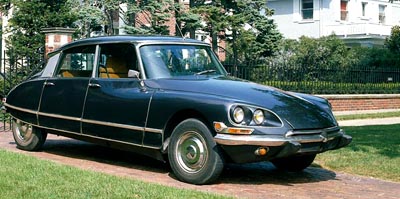 All through its pattern lifetime, the DS managed to stay ahead of its time. It boasted power disc brakes, a hydro pneumatic suspension encompassing a self-acting flattening system and variable ground clearance, power guiding and a semi-automatic transmission. Inboard front brakes decreased heaviness. Distinct front and back pathway widths and consume sizes decreased the under steer usual of front-engine and front-wheel lift vehicles. Gradually many mechanical innovations were introduced in the vehicle.
All through its pattern lifetime, the DS managed to stay ahead of its time. It boasted power disc brakes, a hydro pneumatic suspension encompassing a self-acting flattening system and variable ground clearance, power guiding and a semi-automatic transmission. Inboard front brakes decreased heaviness. Distinct front and back pathway widths and consume sizes decreased the under steer usual of front-engine and front-wheel lift vehicles. Gradually many mechanical innovations were introduced in the vehicle.
Hydraulic design
The hydraulic design of the citroen ds 19 was a transformation. Before that hydraulics had been guarded to use in brakes and power guiding. The DS utilized them for the suspension, clutch and transmission. The subsequent ID19 had manual steering and a simplified power braking system.
Suspension
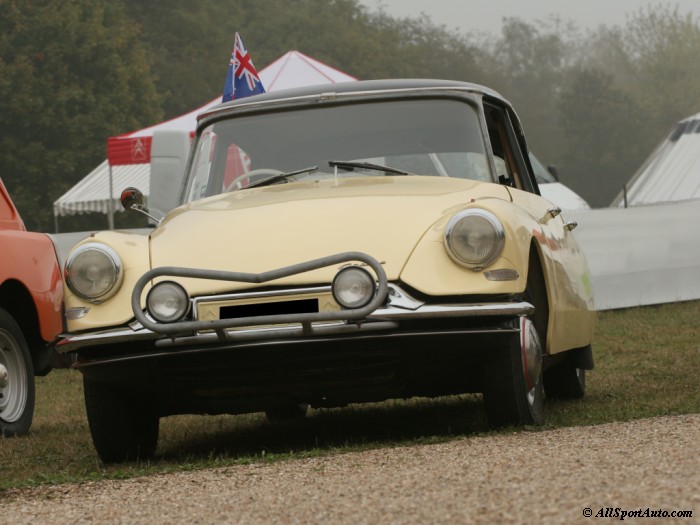 At a time when twosome of passenger vehicles had apprehended up with the four-wheel unaligned suspension of the Traction, the submission of the hydraulic scheme to the car's suspension scheme to provide factual self-leveling was a spectacular move. This proposal hydro pneumatic suspension was pioneered the year before on the back of the peak of variety Traction 15CV-H.
At a time when twosome of passenger vehicles had apprehended up with the four-wheel unaligned suspension of the Traction, the submission of the hydraulic scheme to the car's suspension scheme to provide factual self-leveling was a spectacular move. This proposal hydro pneumatic suspension was pioneered the year before on the back of the peak of variety Traction 15CV-H.
A membrane in the sphere stopped the nitrogen from escaping. The shift of the wheels altered to a shift of the piston that acted upon the oil in the nitrogen cushion and provided the jump effects. Shock absorbing was done by damper valves in conventional suspensions.
Hydraulic fluid
The primary hydro pneumatic scheme utilized a vegetable oil alike to that utilized in other vehicles at the time. Very shortly, Citroen altered to utilizing a synthetic fluid. Both of these had the disadvantage that they are hygroscopic. Disuse allows water to proceed into the hydraulic constituents causing worsening and costly maintenance work. The adversity with hygroscopic hydraulic fluid was exacerbated in the DS/ID due to the extreme increase and fall in the fluid grade in the reservoir, which went from almost full to almost empty when the suspension got up and the 6 accumulators in the scheme covered up with fluid. With every inhalation of new moisture- laden air, the fluid soaked up more water. In August 1967, Citroen presented a new inorganic oil-based fluid LHM. This fluid was much less hard-hitting on the system and it continues in use to the present day.
Gearbox and clutch
 The mechanical facets of the gearbox and clutch were wholeheartedly accepted and the equal elements were utilized in the ID 19.
The mechanical facets of the gearbox and clutch were wholeheartedly accepted and the equal elements were utilized in the ID 19.














